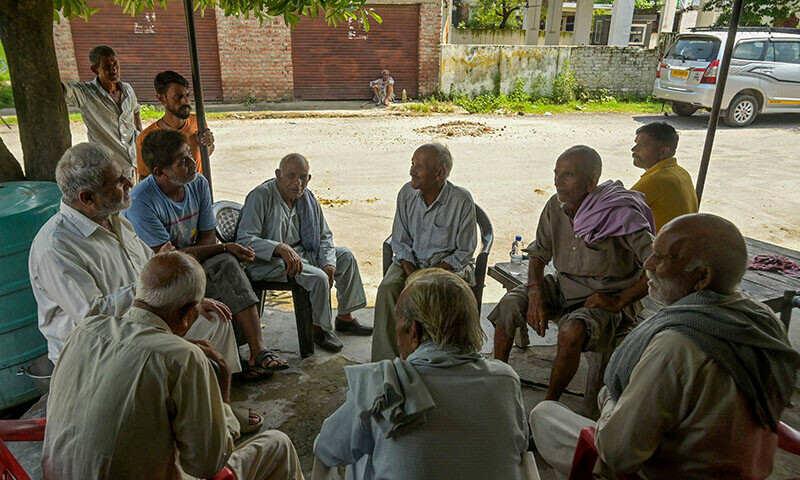
[ad_1]

It has taken 77 years for Dev Raj to be able to vote in local elections in India-occupied Kashmir (IoK), and the Hindu elder is clear on who he will thank.
“I will cast my vote, and happily, for Modi,” Raj said, referring to Indian Prime Minister Narendra Modi, leader of the Hindu-nationalist Bharatiya Janata Party (BJP).
Three-phased elections begin in the Muslim-majority region on September 18, IOK’s first regional assembly election in a decade — and the first since New Delhi imposed direct rule in 2019 — with 8.7 million eligible voters.
Raj’s case illustrates the legacy of colonialism and the complex shifting identities in the disputed Himalayan flashpoint region.
IOK has been divided between nuclear-armed rivals India and Pakistan since their partition at the chaotic end of British rule in 1947, and both countries claim the territory in full.
About 500,000 Indian troops are deployed in the region, battling a 35-year insurgency in which tens of thousands of civilians, soldiers and rebels have been killed, including dozens this year alone.
Raj, 90, was a teenager when Pakistan became independent and an estimated one million people on both sides of the new border were massacred.
Hindus escaped to India. Muslims fled the other way.
Raj settled with around 5,700 Hindu families under Indian rule in Kashmir.
Since then, descendants of those families, now totalling as many as 150,000 people, have been classified as “West Pakistan Refugees” (WPR).
‘Hold close’
They have long been recognised as Indian citizens able to vote in national elections, most recently in June, when Modi won a third term in power.
But IOK’s special semi-autonomous status — constitutionally enshrined power to control its affairs — meant only those who descended from residents of the territory in 1934 could vote and own property.
That changed in 2019 when Modi’s government scrapped those rules and imposed direct governance from New Delhi.
Some hardline separatists, who demand independence for IOK or its merger with Pakistan, oppose the election they see as validating New Delhi’s control.
Critics say the 90-seat assembly will only have nominal powers over education and culture. Key decisions will remain in New Delhi’s hands, including appointing its governor.
But retired shopkeeper Sardari Lal, who was 12 years old when his family fled to the region’s southern Jammu district in 1947, said the poll was something to celebrate.
“The voting right we have got is something I will hold close to my chest for life,” the 89-year-old said.
Lal still recalls the horrors of partition, the immediate aftermath when they “survived by eating leaves” and the abject poverty.
“My grandchildren will do well now,” Lal said.
“They don’t have to live like us.”
‘Vote in celebration’
Observers say previous governments did not grant full rights to the group for fear of upsetting the demographic balance.
However, Modi’s government has encouraged those from outside the region to move to IOK, especially to Jammu district, which has had a majority Hindu population since partition.
Some, such as WPR activist Labha Ram Gandhi, said they would not automatically vote for the BJP.
“They (BJP) expect that since they have granted us full citizenship rights we would vote for them, but the party has not given a single ticket to anyone from among us,” Gandhi told AFP.
“Naturally, we are angry.”
Gandhi said he would vote for candidates who would help them register formal ownership of the land they live on.
But while the WPR group is not large enough to significantly shift poll results, commentators see their vote as part of the BJP’s wider wooing of Hindu support.
“All of us will vote, 100 percent,” said Shamsher Singh, an official of the WPR Action Committee.
“In the parliamentary election (in June) we voted to thank the BJP,” Singh added.
“Now, we will vote in celebration in the assembly election. “
[ad_2]
Source link






